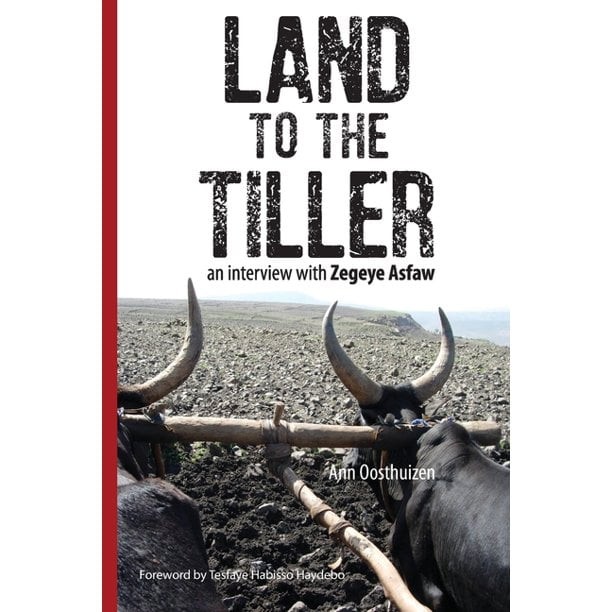One of Ethiopia's most radical policy changes in the modern era was land reform, which nullified tenure agreements and redistributed land (changing much of rural Ethiopia from large land holders with farmers as tenants / sharecroppers to farmers as landowners). Ann Oosthuizen (whose connection to this issue or interviewee is not explained) published an interview with Zegeye Asfaw in "Land to the Tiller: An Interview with Zegeye Asfaw" (2020), who was one of the leading figures of this radical land reform as then Minister of Land Reform. The interviews were conducted in 2012. Although titled as "an interview" the majority of the book (Zegeye's story) is not structured as an interview and organized chronologically. Readers do not know how much editing or synthesizing took place. Although potentially less readable, the transcript form would have been a more transparent way of capturing the stories as Zegeye actually presented them (and the questions asked of him). The book is a fascinating first-hand glimpse into histories and issues that is, despite being short (130 pages), well worth reading.
One note for the ages: "...they haven't told you the real reason why they want you to appear before the Derg commission of enquiry. The whole point revolves around why you had to say "public ownership" instead of "government ownership". At the time when we framed the land reform bill there were two recognised forms of ownership; private ownership and government ownership. The entire pastoralist area was regarded as being under government ownership over which the government gave different concessions. We used the term public ownership because we wanted to prevent the government from confiscating land in order to hand out concessions - to friends and businesses and so on. So we had to re-phrase our defense and explain why we used the term public ownership. Of course, later when the Derg wrote its constitution, they changed the term 'public ownership' to 'government ownership'. I don't know whether we could have saved peasants from eviction by using the term 'public ownership'." (p. 50)

